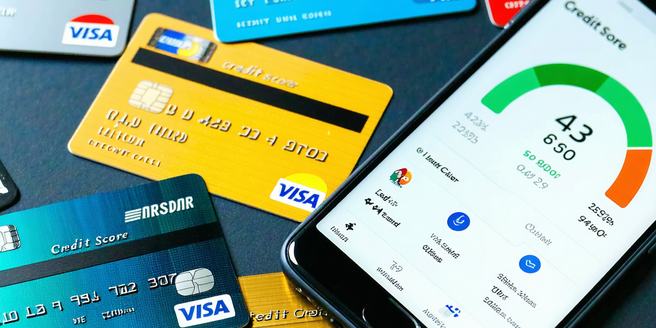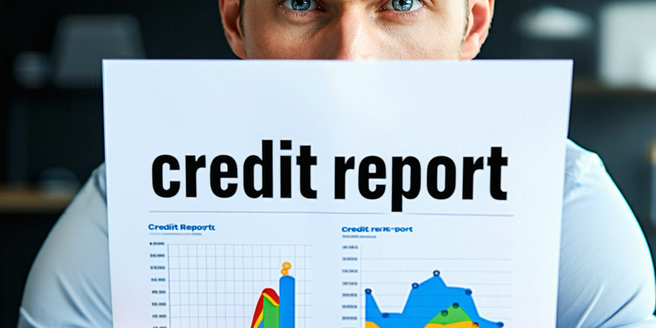Understanding Bad Credit: What It Means
| Credit Score Range | Description | Impact |
| 300-579 | Very Poor Credit | High-risk for lenders |
| 580-669 | Fair Credit | Sub-prime conditions |
| 670-739 | Good Credit | Better loan terms |
| 740-799 | Very Good Credit | Favorable conditions |
| 800-850 | Excellent Credit | Best rates |
How Bad Credit Affects Your Loan Options
Having bad credit significantly influences the types of loans available, often resulting in higher interest rates and limited choices. Borrowers with poor credit scores are seen as high-risk by lenders, which can lead to stringent approval conditions or outright denial. Bad credit can also impact the loan amount you might qualify for, as lenders mitigate risk by offering smaller loans. It’s crucial to explore specialized lenders who consider factors beyond just credit scores. Doing thorough research can help you identify lenders who may be more flexible in their criteria. Finding the right lender for bad credit can prevent rejection and offer more personalized loan terms. Loosening these constraints often means accepting higher fees, so it’s advisable to improve your credit score over time for better opportunities.
Top Factors to Consider When Choosing a Lender
When choosing a lender for loans with bad credit, several key factors should influence your decision. First and foremost, examine the interest rates they offer. Bad credit often results in higher rates, but some lenders might provide more competitive terms than others. Secondly, consider the lender’s reputation and customer reviews, as this can give insight into their reliability and customer service. The availability of flexible repayment terms is also critical, ensuring you can manage payments comfortably. Additionally, check if the lender offers pre-qualification without a hard credit check, which can save your credit score from further impacts. Pay attention to any additional fees lenders might charge, as these can significantly alter the overall cost of your loan.
Comparing Interest Rates: What to Look For
Interest rates are a crucial component affecting the affordability of a loan. When comparing rates among lenders, it’s essential to look at the Annual Percentage Rate (APR), which encompasses both the interest rate and any additional fees. A lower APR typically means lower overall costs. It’s also important to understand whether the interest rate is fixed or variable; a fixed rate remains constant throughout the loan term, while a variable rate might fluctuate, impacting monthly payments. Another aspect to consider is the lender’s transparency about rate changes and how they might affect your loan. Ensure you get a detailed breakdown to avoid hidden costs. Comparing these elements across different lenders and offers will help you make the most informed decision.
Types of Loans Available for Bad Credit Borrowers
Bad credit borrowers still have access to various types of loans tailored to their needs. Personal loans are a popular option, often used for consolidating debt or dealing with emergencies. Despite potentially higher rates, numerous lenders offer these loans to bad credit individuals. It is vital for borrowers to carefully compare terms and conditions before committing to a loan. Payday loans and auto title loans are short-term options but should be approached with caution due to extremely high rates and fees. Secured loans, such as those backed by a car or other asset, might be easier to obtain since they reduce lender risk. Lastly, credit-builder loans can help improve scores by demonstrating reliable payments. Understanding each loan type’s pros and cons ensures better alignment with financial goals.
Online vs. Traditional Lenders: Pros and Cons
The choice between online and traditional lenders involves weighing several pros and cons. Online lenders frequently offer quicker application processes, often with less stringent requirements for bad credit borrowers. They can also provide competitive rates due to lower overheads. However, they may lack the personal touch and advisory services of traditional banks. It’s essential for borrowers to consider the level of customer support they might need throughout the lending process. Traditional lenders, such as credit unions and banks, might provide better customer service and in-person consultations, which can be advantageous for managing financial products and loans. On the downside, traditional lenders often have stricter credit requirements and longer approval times. Weighing these aspects can help borrowers with bad credit make an informed lender choice.
The Role of Collateral in Securing a Loan
Collateral plays a pivotal role in securing loans, especially for those with bad credit. By offering an asset like a car, property, or savings account as collateral, borrowers provide security for the lender, which might result in more favorable loan terms. It’s crucial for borrowers to consider the long-term financial implications before committing an asset as collateral. Collateral helps decrease the risk for lenders, which may lead to lower interest rates despite poor credit scores. However, pledging collateral comes with the risk of asset forfeiture if repayments aren’t made as agreed. Borrowers must carefully weigh the asset’s value against the loan conditions to ensure comfort with the risk. Understanding how collateral can affect loan terms is vital for making informed borrowing decisions.
Improving Your Credit Score: Tips and Strategies
Improving your credit score is crucial for better loan terms and interest rates. Start by checking your credit report for errors and disputing inaccuracies. Ensure timely payments on existing debts, as payment history holds significant weight in score calculation. Regularly monitoring your credit score can provide insights into areas of improvement. Reducing debt and keeping credit card balances low also positively impact your score. Avoid opening new accounts unless necessary, as new credit inquiries can lower your score temporarily. Diversifying your credit types can help, but it’s essential to manage them responsibly. Building a positive credit history takes time, but these strategies can lead to more favorable financial opportunities and reduce borrowing costs over time.
Questions to Ask a Potential Lender
Before settling on a lender, it’s important to ask questions that reveal critical information impacting your loan and financial health. Start by inquiring about interest rates and any associated fees to understand the complete cost of your loan. Ask about the repayment terms, including flexibility and any penalties for early payoff. It’s also crucial to understand their process for handling late or missed payments to avoid potential surprises. See if they offer any pre-qualification process with soft credit inquiries, which will not impact your credit score. Understanding their customer service and support availability is beneficial for addressing any future issues. This due diligence helps mitigate risks and ensure a smooth borrowing experience.
Case Studies: Success Stories of Borrowers
Real-world success stories provide hope and strategies for borrowers with bad credit. One story is of a single mother who significantly improved her credit score through consistent payment of credit-builder loans, eventually qualifying for a mortgage. Her journey involved meticulous budgeting and prioritizing her financial goals. Another involves an entrepreneur who turned around a failing credit history by consolidating high-interest debts into a manageable personal loan, allowing the business to grow. A young graduate used peer-to-peer lending to refinance student loans, resulting in lower interest rates and faster repayment. By sharing experiences and strategies, these borrowers demonstrate that even with bad credit, financial recovery and successful loan acquisition are achievable with determination and the right approach.



